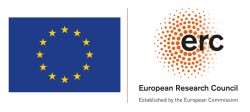The ERC StG Project MapModern - Social Networks of the Past: Mapping Hispanic and Lusophone Literary Modernity, 1898-1959 and the Global Literary Studies (GlobaLS) research group of the IN3 are pleased to invite you to the virtual conference: 'Cultural Organizations: Between the Local and the Global (1880s-1960s)'.
Venue
Online
Espanya
When
18/11/2020 - 20/11/2020 15.00h
Organized by
Universitat Oberta de Catalunya, Research group GlobaLS of the IN3
Program
Over the last few years, the study of cultural organizations has kindled the interest of a growing number of researchers who work in diverse fields, disciplines, and perspectives—including cultural and literary history, sociology and international cultural relations. Despite the potential of this object of study, it poses several challenges given the polysemy of the term, the heterogeneous realities encompassed by it and the disciplinary fragmentation from which cultural organizations have been studied to date. In this sense, we lack a shared theoretical framework that would allow us to consider their common features and articulate their differences.
Within this general framework, we understand cultural organizations as: 1) organizations that promote cultural transfer and thus facilitate the circulation of persons, ideas, and symbolic cultural goods, 2) spaces that provide cohesion to national cultural fields by articulating the relationships between the various actors in said space, but which can also enable international projection; and 3) agents that favor the creation of transnational intellectual networks in a broad sense. Certainly, international action in the cultural field can present different connotations according to each culture’s position in the international arena: when it comes to hegemonic cultures, foreign promotion may camouflage an imperialist project, while when it comes to peripheral, non-state, or minority cultures, foreign promotion appears to be a necessary strategy to compensate for a lack of economic and military power. This conference aims at analyzing the strategies deployed by cultural organizations to internationalize a given culture and the entanglements of public and the private actors in such framework. Methodological issues will be also discussed, such as the challenges and possibilities of a transnational comparison or the use of quantitative methods and social network analysis to approach this growing venue of research.
Full program below.
WEDNESDAY, 18 NOVEMBER 2020
Opening address
15:00 - 15:15 h Diana Roig Sanz & Elisabet Carbó.
Keynote speaker
15.15 h - 16.15 h François Chaubet (Université Paris Nanterre) 'État de l’art dans les relations internationales culturelles'.
PANEL 1. CULTURE & SOFT POWER
16.15 h - 16.35 h Kira Alvarez (Freie Universität Berlin) 'Creating a Musical Bridge: The American Palestine Music Association (1932-1941) between the United States and Mandatory Palestine'.
16.35 h - 16.55 h Bianka Trötschel-Daniels (Bergische Universität Wuppertal) 'The internationalization of monuments preservation in the GDR until 1969'.
16.55 h - 17.15 h Discussion
17.15 h -17.35 h Cyril Cordoba (Université de Lausanne) 'Cultural or Political Organizations? The friendship associations with China during the Cold War'.
17.35 h - 17.55 h Kristina Jorgić Stepanović (Republički zavod za zaštitu spomenika kulture / Institute for the Protection of Cultural Monuments of Serbia) 'The Little Entente of Women (1923-1939) – A Yugoslav Transnational Experience'.
17.55 h - 18.15 h Discussion
THURSDAY, 19 NOVEMBER 2020
Keynote speaker
15.00 h - 16.00 h Martin Grandjean (Universitat de Lausana) 'Using Network Analysis to Question the Concepts of Centrality and Periphery in Complex Historical Structures'.
PANEL 2. FOSTERING CULTURAL RELATIONS: STRATEGIES I
16.00 h - 16.20 h Adam Humphreys (European University Institute) 'The Development of the British Institute of Florence, 1917-1922'.
16.20 h - 16.40 h Florence Kauda (Universität Wien) 'Promoting French Culture in Barcelona against the backdrop of shifting politics (1918-1950): Why capturing the Institut Français de Barcelone’s agency demands a multidimensional approach'.
16.40 h - 17.00 h Elisabet Carbó (IN3 - Universitat Oberta de Catalunya) 'Institutions of foreign cultural projection: an overview of the Catalan case'.
17.00 h - 17.30 h Discussion
17.30 h - 17.45 h Coffe break
PANEL 3. FOSTERING CULTURAL RELATIONS: STRATEGIES II
17.45 h - 18.05 h Jorge Locane (Universitetet i Oslo) 'El Consejo Mundial de la Paz como institución pionera en la internacionalización de la literatura latinoamericana'.
18.05 h - 18.25 h Yadira Carranza (École Normale Supérieure) 'Lieux et figures de médiation. Le rôle de l'UNESCO dans la circulation de la littérature latino-américaine'.
18.25 h - 18.45 h Discussion
FRIDAY, 20 NOVEMBER 2020
PANEL 4. CULTURAL INSTITUTIONS IN THE LITERARY FIELD: JOURNALS
14.30 h - 14.50 h Margarita Garbisu (Universidad a Distancia de Madrid) 'Las revistas del periodo de entreguerras como espacio de internacionalización de la cultura: Europäische Revue y la Unión Cultural Europea'.
14.50 h - 15.10 h María Teresa Navarrete (Universiteit Gent) 'Mediation and cultural transfer in the literary network Ágora during the Franco regime'.
15.10 h - 15.30 h Discussion
Keynote speaker
15.30 h - 16.30 h Alexandra Pita (Universidad de Colima) 'México en el ámbito de la cooperación internacional de entreguerras: redes intelectuales y diplomacia cultural'.
PANEL 5. CULTURAL INSTITUTIONS IN THE LITERARY FIELD: FORMS AND SPACES OF CULTURAL SOCIABILITY
16.30 h - 16.50 h Fatiha Idmhand (Université de Poitiers) i Margarida Casacuberta (Universitat de Girona) 'José Mora Guarnido et Jaume Sabartés: deux médiateurs culturels en Uruguay'.
16.50 h - 17.10 h Lucía Di Salvo (Universidad de Buenos Aires) 'Notas sobre literatura transnacional a partir del Primer Congreso Americano Lingüístico de Buenos Aires en la revista anarcosindicalista Timón (Barcelona-Buenos Aires, 1939- 1940)'.
17.10 h - 17.30 h Discussion
17.30 h - 17.50 h Margarida Casacuberta (Universitat de Girona) 'The Floral Games and The Literary Contests in Catalan (1859-1977): an institutionalizing and nationalizing device of transnational scope'.
17.50 h - 18.10 h Juan David Murillo (Instituto Caro y Cuervo de Bogotá) '’Reducing books’ prizes in order to multiply them”: festival organizations and cheap series in the popularization of national literatures in Latin America, 1955-1960'.
18.10 h - 18.30 h Delia Guijarro (Université de Paris-Nanterre/EHESS) 'Trois institutions à l’origine d’un sous-champ transnational de la littérature jeunesse (1945-1965) : le rôle des acteurs espagnols'.
18.30 h - 19.00 h Discussion
Closing remarks
19.00 h - 19.15 h Diana Roig Sanz (Ramón y Cajal Senior Fellow, ERC StG Research Fellow, IN3 – Universitat Oberta de Catalunya).
This conference is organised by the ERC StG project ‘MapModern - Social Networks of the Past: Mapping Hispanic and Lusophone Literary Modernity, 1898-1959’, led by Diana Roig-Sanz and funded by the European Research Council (ERC) under the European Union’s Horizon 2020 research and innovation programme (grant agreement No 803860). This project is also hosted by the Global Literary Studies Research Group (GlobaLS), at the IN3-UOC, Barcelona.


